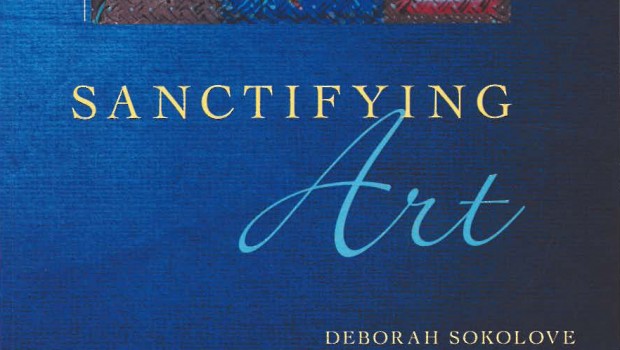
The World is Full of Problems by Deborah Sokolove
Excerpt from Sanctifying Art by Deborah Sokolove
The world is full of problems: war, homelessness, global warming, domestic violence, AIDS, hunger, drug abuse. The list goes on and on. In a world that seems to be always on the brink of disaster, there is an endless amount of work to do to help the earth heal from pollution of every kind; to insure adequate nutrition, housing, education, and health care to every person; to bring peace among the nations and in every city and village and home. And yet, if all of this is done, and there is no art, then the world will still be a sad, sorry, joyless place.
Too often, we trivialize art, seeing it as the province of children or as a recreational activity for adults with both time and money to spare from what are regarded as more important pursuits.
Still, in most of the developed world, and especially in those parts of the world most influenced by the Protestant churches, art is often treated as suspect, as Jeremy Begbie puts it “a luxurious ornament,” a frivolous frill that is easily discarded whenever resources are stretched and other needs seem more pressing. In the face of diminishing budgets and continual insistence on raising test scores, public schools in the United States are consistently pressured to reduce or eliminate time spent on music, dance, and drawing; the National Endowment for the Arts is repeatedly threatened with losing its funding; and local arts organizations constantly operate on the edge of budget disaster.

- Deborah Sokolove is Director of the Henry Luce III Center for Arts and Religion at Wesley Theological Seminary.
Some of the sources for this attitude may be found in the complex relationship that Christianity has had with the arts at least from Augustine onward, describing them at once as a good gift from God and as a distraction from true worship. Other sources are deeper, dating back to early Greek philosophers who posited a dualistic universe in which the physical, mate-rial world apprehended through the senses was understood as an unreal shadow of true reality, which could only be apprehended through reason.
The church, broadly speaking, both influences and is influenced by the attitudes of the society around it. Because of our collective discomfort with the arts, both the church and the world tend to think about them in ways that are problematic for artists as well as, ultimately, for society at large and the church in particular. Sometimes, we instrumentalize art, turning it into a means to achieve didactic, propagandistic, or other pragmatic ends. At other times, we commercialize art, turning it into a commodity to be bought and sold, with little or no regard to its intrinsic worth. In other circumstances, we demonize art, seeing only its potential as the object of idolatrous worship, on the one hand, or as the tempting purveyor of other illicit thrills, on the other. Too often, we trivialize art, seeing it as the province of children or as a recreational activity for adults with both time and money to spare from what are regarded as more important pursuits. Finally, we may spiritualize art, ignoring its sources in the concrete materiality of life while believing that art will somehow save us from ourselves, or that artists have a better pathway to God than everyone else.
Too rarely, we see art as an answer to a real—though hard to define— human need, as a legitimate response to God’s call on all our lives to love and serve the world. Many of the ways in which art has been characterized are misunderstandings about the nature and function of art, or address some kinds of art while ignoring others. These mischaracterizations divert us from recognizing how the arts actually help us to understand, interpret, and communicate our experience of the world around us. Instead, they either strip the arts of their genuine power or elevate them to a status that they do not deserve. Such ideas also tend to alienate artists, who think about an artwork in terms of how it operates on the senses; how it fits into its historical, physical, and spiritual context; or how subtle changes to visual, auditory, or physical configurations can shape our experience and touch us at the deepest places of our being.
Deborah Sokolove is the Director of the Henry Luce III Center for the Arts and Religion at Wesley Theological Seminary, where she also teaches courses in art and worship. She received her B.A. and M.F.A. from California State University at Los Angeles; a Master of Theological Studies degree from Wesley Theological Seminary; and the Ph.D. in Liturgical Studies from Drew University. Before coming to Wesley as Artist-in-Residence in 1994, she taught art, design, and computer imaging at the university level. In recent years, she has been a regular contributor to ARTS, the journal of the Society for the Arts in Religious and Theological Studies, and her essays on art, faith and the artist’s life have appeared in other publications as well as several books on religion and the arts. Her work has been shown locally and nationally, and is represented in numerous collections.





